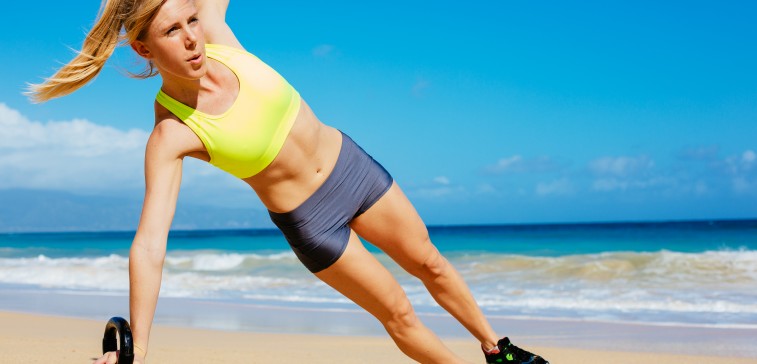
Blog Breakdown:
- The internal oblique is an abdominal muscle that rotates the trunk of the abdomen, supports the abdominal wall, and assists with forced respiration.
- These muscles are often called “same side rotators” due to their anatomy and function and simply put, they are imperative in your golf swing.
- In this blog, Founder of Golfstretch Therapies, Adam Swanson, explains why it’s important to strengthen this muscle group to improve performance.
When you strike a golf ball with your club, you activate various muscles throughout your body. Your core, arms, shoulders, and thighs become engaged; they work together to control movement, ensure stability, and minimize pressure being placed on your lower back. Needless to say, your whole body withstands a lot of stress when playing golf – but you knew that.
Regardless, it’s imperative recreational, amateur, and professional golfers implement core exercises in their golf training programs to not only increase power in their swing, but to help even out weight in the hips. Failing to do so could lead to pain and dysfunction in the lower back and hips, resulting in a short-lived golf career. Before I explain, and later demonstrate, the exercise I’ve prepared for this blog today, I want to focus your attention on the anatomy and physiology of core muscles.
The abdomen is a complex structure made up of five muscles. These muscles can be divided into two groups: vertical muscles and flat muscles. There are three flat muscles in the abdominal wall: the external oblique, the internal oblique, and the transversus abdominis. Vertical muscles include the rectus abdominis and the pyramidalis. All of these muscles help protect internal structures (i.e. bones and vital organs), rotate the spine, increase pressure for certain bodily functions such as defecating, regulate breathing movements, and support surrounding muscles.
The internal obliques are especially important in golf because they help rotate the body. Many of my clients come in here with strong obliques on one side of their body because they’re favoring the opposite side every time they swing their club. This is very common, but it can lead to pain and other discrepancies in the abdominal cavity. In the video below, I demonstrate an exercise that helps strengthen both obliques so clients are evening out the power and stability factor within their core. This will ultimately reduce tension in the lower back and hips, preventing future damage to the lower extremities.
Core Internal Oblique Dips
For this exercise, you don’t need any equipment, but you may want an exercise mat if you’re performing this core strengthening move on a hard surface. First, you’ll want to lay down on your side with your elbow placed in line with your shoulder. Position the leg that’s on top several inches in front of your bottom leg and raise your hips upward. When you’re ready, dip your hips and core down toward the mat, but don’t touch the mat completely. Hold for a few seconds, and then raise your hips back toward the ceiling.
Repeat this move 8-10 times in a slow, controlled manner. You want to make sure you’re doing this exercise at a slower place to train your deep stability muscles. If you can only do a few dips, don’t worry, start with fewer reps and then work your way up to more reps as you get stronger.
Check out the exercise in the video below, and call 480-269-1119 if you have any questions or concerns! If you’re experiencing pain or other problems with your golf swing, do not hesitate to schedule a consultation with me. Prolonging treatment will only make things work, so call me as soon as you begin experiencing pain and other symptoms.
Golfstretch Therapies is a sports performance and rehabilitation center located in Scottsdale, Arizona. Utilizing a combination of therapies, the team at Golfstretch Therapies helps clients achieve their health and fitness goals. To learn more about golf fitness, stretch therapy, corrective exercise, and more, call 480-269-1119 to schedule a consultation today! We look forward to hearing from you!
The advice and information contained in this article is for educational purposes only and is not intended to replace or counter a physician’s advice or judgment. Please always consult your physician before taking any advice learned here or in any other educational medical material.
